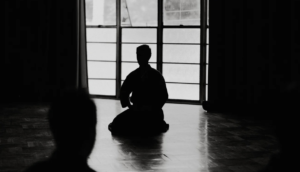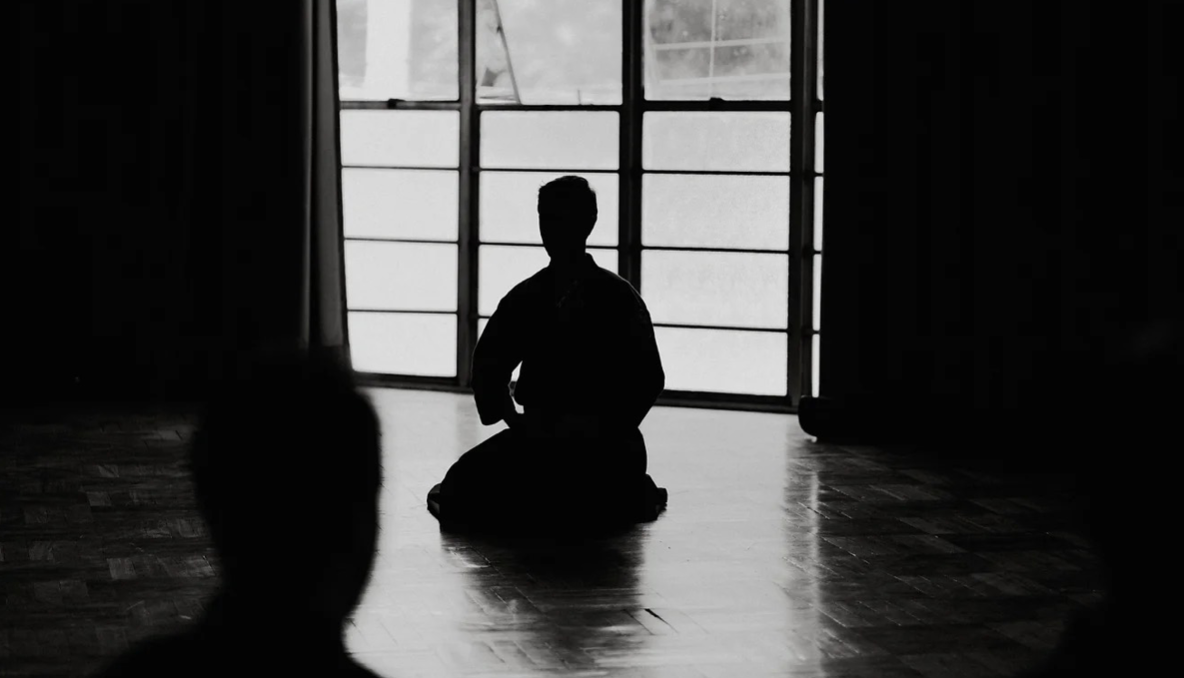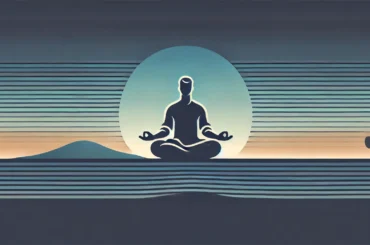I wanted to write on this topic a long time ago, but I procrastinated for a while and later didn’t think of it as a priority. But it was always in the back of my head, and overtime the experiences have piled up, which will take at least a few posts to convey justifiably. So this will be one of several posts on this topic, and I’ll get right into it. I’ve shared this with all seriousness to my close ones, that is, if there’s one thing that I have found so far that I bet can fill me with a sense of true freedom and psychological exploration as one would hope to have—it’s ‘Meditation’, and I wish to be as specific as required in this post.
I am, however, fully aware that this term itself has been overblown with exaggerations and even pretension by certain practitioners. It’s also gotten quite a bad reputation with people fighting over whose technique is better, or even whose Gurus are more divine than others. So, I must clarify before I step into any of those shaky territory, that I made that claim in all sincerity, and perhaps I’ve had enough failed experiments to be sure of what doesn’t work for me.

In the vast world of Meditation, so far I have found my peace with Vipassana. For many, Vipassana is more sophisticated than its general introduction. It’s a subject where one can go all in as they write, and many have. The corpus in this subject is immense. For starters, Vipassana, which translates to ‘seeing things as they really are’, is a form of meditation, where I’d say the basics are super-basic and the sophistications are super-sophisticated. But if I were to make a thirty-second pitch about the topic, I’d say that it’s a mindfulness technique and a method of self-observation and self-inquiry where you ‘allow’ yourself to ‘observe’ your physical and mental being. To pursue this, the common technique includes dedication of focus in one’s breath, sensations of the body, thoughts and emotions. The typical lotus posture that we see in pictures of many monks is the way to go. Though it is a technique in itself, it’s also commonly known for its retreats or camps, typically a week or ten days long (or months) and is hosted by several institutions. ‘Silence’ is taken quite seriously in many of these camps and most of them disallow any form of verbal communication throughout. Nevertheless, the features of this method are dynamic, so it wouldn’t be entirely correct to regard the above explanation as the ‘only way’ to pursue this.
I was introduced to the idea of Vipassana when I was 19. I was 22 when I enrolled in my first Vipassana Camp. I had involved myself in spiritual or meditative camps before ever since I was 16, and kept on extending my exposure to trainings and camps from diverse institutions beyond Vipassana after my first enrollment there. I had tried several methods, some more effective than others. For around four years starting from the age of 20, I went through an immensely wide range of literature on the subject of meditation and spirituality—from ones based on researches in neuroscience, to traditional texts, to people’s experiences that researches haven’t been able to fully comprehend, to opinions which can be best explained as illusion embraced while in search of an identity (or maybe Godot!). I’m 27 now, and my priority is the ‘practice’ more than the text in this area, though I still find the growing scientific literature on this to be immensely useful and thought provoking.
Though meditation is a topic talked by many, and claimed by many as their regular practice, it’s usually a handful number of people who are consistent with it. I too have had quite a bit of irregularities, though I knew that consistency would have been much better. The benefits would have piled up into something beautiful. But I have been lucky enough to have found the right environment where getting back on track was quite effective.
Here’s a context—a lot of opinion about meditation in social domain comes from the ‘best case scenario’ testimony of people. So before I explain how useful I think these practices have been for me, I have to confess that I am both skeptical as well as inexperienced about some of the popular testimonies such as eternal awakening, or a complete understanding of life, an experience of timelessness, feeling of unity with divine, or activation of certain inactive senses or glands. Since I will be re-reading this piece and question if I have been able to convey my perspective on this subject well enough, I want to be extra careful as I think this is a shaky territory, as most opinions are immediately associated with popular opinion in social media. So here we go! At the end of every camp, or regular days of meditation, something that has always happened is an amazing feeling of Happiness. The capital ‘H’ was more intentional than usual. And I would say I’ve had greater control over the feeling of happiness and peace after every regular practice. I wouldn’t hesitate to use the term ‘at peace’ to an extent to explain my experiences. Perhaps, I’d also use a mini-version of ‘bliss’, and I’ve attached the word ‘mini’ because I do think the feeling of bliss is a super-power explored by few; one that is transformative, and often described by people as one of their best experience in life. I’ve been fascinated by how well some confused or even chaotic thoughts have merged with clarity so well. I’m also thrilled by how intense some sessions have been, where some of the most disturbing thoughts seemed more alive than ever before, challenging the other version of self in a mental battlefield. It’s been better than any travels I’ve had—especially sessions where the ‘mental’ could finally be viewed with fine clarity. The experiences at the very least suggest that there’s so much more to explore on the level of psyche, simply with a technique that allows one to just ‘watch’, and watch well enough, long enough and carefully enough that the view only gets clearer and clearer.
There’s another side of experiences which I’d say are quite spooky, at least for me. Some of them are linked with dreams, some about conceptual perspectives, some about mental battles, and others about overcoming specific forms of emotions or feelings. But I’ll reserve that for future content. I shouldn’t miss claiming that this method has, by far, been one that has invited more clarity about personal worries than any other platform I’ve been exposed to, be it books, lectures, travels, though I would say that I’ve understood several read concepts better during meditation sessions.
I am, however, not a religious devotee of any institution or presumed deity, or have made peace with Vipassana simply because its been useful. It has actually been an eye opener, and perhaps drilled into me deeper than other meditative tools and methods. There was a point several years ago where I was hooked into trying different meditation techniques, both institutionally and non-institutionally. It was only after years, and after trying out over 40 procedures/techniques with some regularity at the very least, before deciding to write using the phrases I’ve used in this post. Honestly, different methods can serve different purpose, and I wouldn’t make a claim that Vipassana stands at the top of a hierarchy, if there is one. Even for me, some of the practices had better short-term effect than Vipassana. I would definitely place Guided Hypnosis (as long as you’re getting the right guidance) as an extremely effective method of overcoming psychological hurdles. If I were given a choice – an hour of Guided Hypnosis or an hour of Vipassana, I’d pick the first one for sure. If the choice were between the two for 10 days of regular practice, I wouldn’t think twice and pick the latter.
Vipassana, for me so far has been the richest source of self inquiry, and at the end of every camp or regular practice, I’ve been fascinated with the level that’s been explored, and how much more there is to dive into. There’s definitely more to find beyond this method, so it wouldn’t be wise of me to make an absolute religious claim that places Vipassana in any ‘ultimate’ level above others. One of my bigger worries in life is about falling into the traps of religious or ideological dogma, so I intent on prioritizing personal experience or scientific consensus in a higher bar than popular or influential opinions. But for what it’s worth, it has, over other meditative techniques, convinced me that a regular practice through this method would be an excellent way (or an excellent risk) into a deeper and meaningful meditative experience.
This long post should serve no as more than a context or clarification about my perspective on this before I start jumping into heated issues. I wish to be honest before I start being harsh with my claims. One of the harder challenges in life is to separate reality the way it is from the way it’s not though it appears to be. That’s the pursuit both with meditation, and I’d say with writing as well. This intent inevitably invites conflict on the level of ideas, and I believe some of the future writings on this topic might just be on the ‘unpopular’ side of the pop spiritual culture. I’m curious to know how that turns out.






